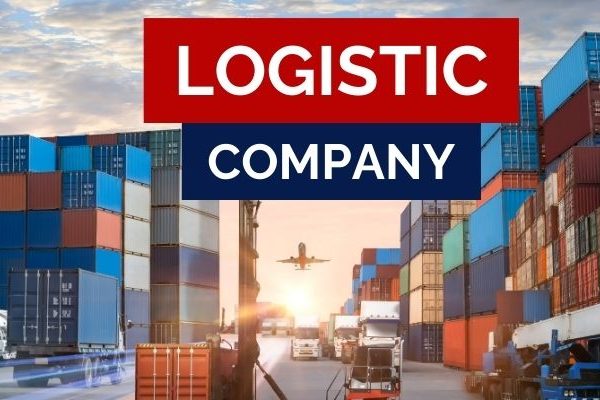- If you have any questions, please contact us!
- +84 965 624 065
- info@greennrj.com.vn

Invest in Vietnam 2025: Essential Guide to Profitable Opportunities and Low Labor Costs
May 11, 2025
How to Set Up a Foreign-Owned Digital Marketing Company in Vietnam: Proven 2025 Guide
May 12, 2025How to Set Up a Logistics Company in Vietnam: Proven Guide for Foreign Investors (2025 Update)
1. Overview of the Logistics Industry in Vietnam
The logistics industry in Vietnam plays a vital role in supporting the country’s fast-growing economy and international trade. This sector encompasses a wide range of services including freight forwarding, warehousing, customs clearance, and transportation by road, rail, air, and sea, as well as various value-added logistics services.
Thanks to its strategic geographical location in Southeast Asia, Vietnam serves as a natural gateway for trade between ASEAN countries and global markets. The country has benefited significantly from free trade agreements (FTAs) and continuous investment in logistics infrastructure, including modern seaports, expressways, and logistics parks.
With rising demand for efficient supply chain management and increasing foreign direct investment (FDI), Vietnam is emerging as a regional logistics hub in ASEAN, offering competitive costs and improving service capabilities.
2. Foreign Ownership Limits and Business Scope
Foreign investors interested in entering Vietnam’s logistics industry must understand the specific limitations on foreign ownership and the forms of investment permitted for each logistics subsector. These restrictions are based on Vietnam’s commitments under the World Trade Organization (WTO), primarily governed by Decree No. 163/2017/ND-CP on logistics services, as amended by Decree No. 47/2021/ND-CP, and relevant guiding circulars
Overview of Foreign Investment Restrictions by Logistics Subsector
Below is a comprehensive breakdown of the permitted forms of investment and the maximum allowable foreign ownership percentage, depending on the type of logistics services:
|
Logistics Subsector |
Form of Investment |
Maximum Foreign Ownership |
Explanation |
|
Sea freight services (excluding domestic transport) |
Joint venture with a Vietnamese company |
49% |
Foreign investors can participate in international sea freight services in Vietnam through a joint venture with a local company. However, foreign capital contribution must not exceed 49%. Domestic sea freight remains restricted to Vietnamese investors. |
|
Container handling services (related to sea freight support) |
Joint venture |
50% |
This includes container loading, unloading, and handling services. For activities related to seaports or inland container depots (excluding airport handling), foreign ownership is capped at 50% and requires a joint venture structure. |
|
Container handling services (excluding airport operations) |
Joint venture |
50% |
|
|
Inland waterway freight transport |
Joint venture with a local partner |
49% |
Foreign investors can invest through a joint venture model with Vietnamese partners. The maximum foreign ownership allowed is 49%, in line with Vietnam’s WTO commitments. |
|
Rail freight transport services |
Joint venture |
49% |
Similar to inland waterway freight, rail transport services also require foreign investors to enter a joint venture, and they are permitted to own up to 49% of the capital. |
|
Road freight transport services |
Joint venture |
51% |
This subsector permits a slightly higher foreign ownership cap. Investors may establish a joint venture with a Vietnamese enterprise and own up to 51% of the company. |
|
Warehousing and storage services |
Wholly foreign-owned enterprise or joint venture |
100% |
Foreign investors are granted full ownership (100%) or may choose to cooperate through a joint venture. This includes activities such as cold storage, bonded warehousing, and distribution centers. |
|
Freight forwarding, agency, and documentation services |
Wholly foreign-owned enterprise |
100% |
Vietnam allows 100% foreign ownership in these areas. Investors can set up wholly foreign-owned enterprises to provide forwarding, cargo agency, and transport documentation services. |
|
Customs clearance, sampling, and inspection services |
Wholly foreign-owned enterprise |
100% |
Foreign enterprises can also establish wholly owned companies to offer customs brokerage, goods sampling, and quality inspection services with no ownership restrictions. |
Note: Several logistics services are classified as conditional business lines under Vietnam’s Law on Investment. This means investors may be required to meet certain conditions such as minimum charter capital, professional practice certificates, or specialized licenses before commencing operations.
Depending on the type of logistics services, foreign investors are allowed to own from 49%, 51% to 100% of charter capital, based on Vietnam’s WTO commitments. Additional market access commitments under FTAs such as the CPTPP or EVFTA may offer more favorable terms, but their application is subject to approval by relevant Vietnamese authorities.
In addition to capital ratio requirements, certain services may require specialized licenses, professional practice certificates, or statutory capital under Decree No. 163/2017/ND-CP as amended by Decree No. 47/2021/ND-CP.
3. Step-by-Step Process to Establish a Logistics Company
Starting a logistics company in Vietnam involves several key steps, each crucial to ensure compliance with local laws and regulations. Below is a comprehensive guide to help you navigate the process efficiently.
Step 1: Determine Services and Ownership Structure
What to do:
- Clearly define the logistics services your company will provide, such as warehousing, transportation, freight forwarding, or customs brokerage.
- Consult Vietnamese regulations and Vietnam’s WTO commitments to determine applicable foreign ownership restrictions.
- If ownership restrictions apply to your chosen services, find a reliable Vietnamese partner to establish a joint venture.
Why it matters:
This step ensures your business model aligns with Vietnamese laws, preventing delays in the licensing process and ensuring smooth registration of your logistics business.
Step 2: Reserve Company Name
What to do:
- Perform a name search on the National Business Registration Portal to ensure your desired company name is available.
- Submit a name reservation request to the Department of Planning and Investment (DPI) for approval.
Why it matters:
Reserving a unique and compliant company name prevents potential conflicts and legal issues. It is essential for securing a proper business registration in Vietnam.
Step 3: Apply for the Investment Registration Certificate (IRC)
What to do:
- Prepare and submit an Investment Registration Certificate (IRC) application to the Department of Planning and Investment (DPI). Required documents include:
- IRC application form
- Investment proposal (detailing objectives, scale, capital, and location)
- Proof of the investor’s legal status (e.g., passport, business registration certificate)
- Financial capacity documents (bank statements, audited financial reports)
- Lease agreement or Memorandum of Understanding (MoU) for office or warehouse space.
Timeline:
- Typically takes 15-20 working days according to the law, but in practice, it may take longer depending on the location and the completeness of submitted documents.
Why it matters:
The IRC grants legal permission for foreign investment and ensures compliance with Vietnam’s regulatory requirements for foreign-owned businesses.
Step 4: Apply for the Enterprise Registration Certificate (ERC)
What to do:
- Once the IRC is obtained, submit an Enterprise Registration Certificate (ERC) application, which includes the following:
- Enterprise registration application form
- Company charter (in Vietnamese)
- List of shareholders/members
- Notarized identification documents
- A copy of the IRC.
Timeline:
- Typically takes 3-5 working days.
Why it matters:
The ERC formally establishes your company as a registered entity in Vietnam and provides the legal basis for conducting business operations.
Step 5: Complete Post-Establishment Procedures
What to do:
- Carve and register your company seal.
- Obtain a tax code and register for Value-Added Tax (VAT) and Corporate Income Tax (CIT) with the Vietnamese tax authorities.
- Open a corporate bank account and deposit the required charter capital within 90 days of business registration.
- Pay the annual business license tax.
Publicize your business registration on the national portal.
Why it matters:
These post-establishment procedures are mandatory for your business to legally operate in Vietnam and maintain compliance with local regulations.
Step 6: Obtain Sector-Specific Licenses (if applicable)
What to do:
- Depending on the logistics services you intend to offer, you may need to apply for specific licenses:
- Road Transport License (issued by the Ministry of Transport)
- Customs Brokerage License (issued by the General Department of Customs)
- Maritime Transport License (if offering sea freight services)
Why it matters:
Operating without the necessary licenses can lead to penalties, suspension of operations, or even the revocation of business registration. Obtaining the right licenses ensures legal operation in Vietnam.
Step 7: Ensure Compliance and Operational Setup
What to do:
- Set up accounting systems that comply with Vietnamese Accounting Standards (VAS).
- Register employees with the Vietnamese social/health insurance system.
- Sign labor contracts and comply with Vietnam’s labor laws.
- Submit periodic tax and business reports to the relevant authorities.
Why it matters:
Maintaining compliance with Vietnamese tax, labor, and accounting regulations is essential to avoid administrative penalties and ensure that your business remains in good standing.
4. Estimated Timeline
|
Activity |
Timeline (Approx.) |
Notes |
|
Investment Registration Certificate (IRC) |
15–20 working days |
Timeline may vary depending on the province and complexity of the business. |
|
Enterprise Registration Certificate (ERC) |
3–5 working days |
Processing time may differ based on the completeness of submitted documents. |
|
Post-IRC Procedures (including company seal registration, tax code, and bank account setup) |
1–2 weeks |
Can be completed concurrently with other steps if all documents are ready. |
|
Sector-Specific Licenses (if applicable, e.g., Road Transport, Customs, Maritime Transport) |
2–4 weeks |
Timeline depends on the type of logistics services provided. |
|
Total Estimated Time |
2–3 months |
If all documents are complete and there are no delays in the process. |
5. Green NRJ Support Services
Green NRJ offers end-to-end support to help foreign investors establish logistics companies in Vietnam:
- Legal consulting and feasibility study
- Preparation and submission of IRC/ERC
- Licensing and compliance management
- Office and warehouse sourcing
- Post-registration tax and labor setup
Why Choose Green NRJ?
- Experienced in logistics, import-export, and transport
- Transparent process and pricing
- Dedicated English-speaking consultants
Contact us today to embark on your investment journey in Vietnam’s thriving logistics sector.
6. FAQs
Q1: Can a foreign investor own 100% of a logistics company in Vietnam? A: Yes, but only for specific services like warehousing and freight forwarding. Services such as road transport require a joint venture.
Q2: How long does it take to set up a logistics company in Vietnam? A: On average, 2–3 months, depending on licensing requirements and document preparation.
Q3: Is a Vietnamese director required? A: No. However, certain services may require local personnel with specific licenses (e.g., customs brokers).
Q4: Is it mandatory to rent office/warehouse space before applying for an IRC? A: Yes. A lease agreement is required when submitting the IRC application.
Q5: What are the main tax obligations for a logistics company?
A: VAT (10%), CIT (20%), PIT for employees, business license tax, and annual accounting/reporting.
Q6: Are there any legal requirements that foreign investors must comply with when investing in logistics services in Vietnam?
A: Yes. Foreign investors must ensure full compliance with Vietnamese laws, including the Law on Investment 2020, Law on Enterprises 2020, and Decree No. 01/2021/ND-CP. In addition, depending on the type of service provided, investors may need to comply with specialized regulations such as Decree No. 163/2017/ND-CP (as amended by Decree No. 47/2021/ND-CP).
Investors are also responsible for fulfilling reporting obligations, adhering to foreign exchange control regulations, and properly managing repatriation of profits.
For tailored support in establishing your logistics company in Vietnam, contact Green NRJ today.
Related Articles:
- How to Start a Business in Vietnam: A Complete Guide for 2025
- Establishing a Representative Office in Vietnam: A Step-by-Step Guide for Foreign Companies
- How to Establish a Consulting Business in Vietnam – A Legal and Practical Guide (2025)
- How to Set Up a Construction Company in Vietnam (2025)
- How to Establish a Headhunting Company in Vietnam: A Complete Guide for Foreign Investors
- How to Establish a Foreign-Invested E-Commerce Company in Vietnam: A Complete Step-by-Step Guide for Foreign Investors




